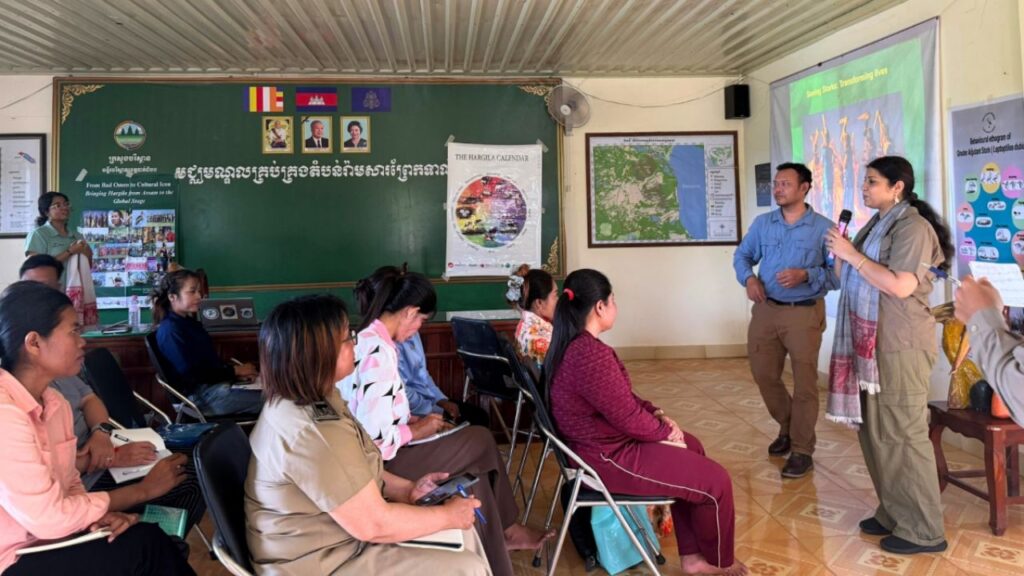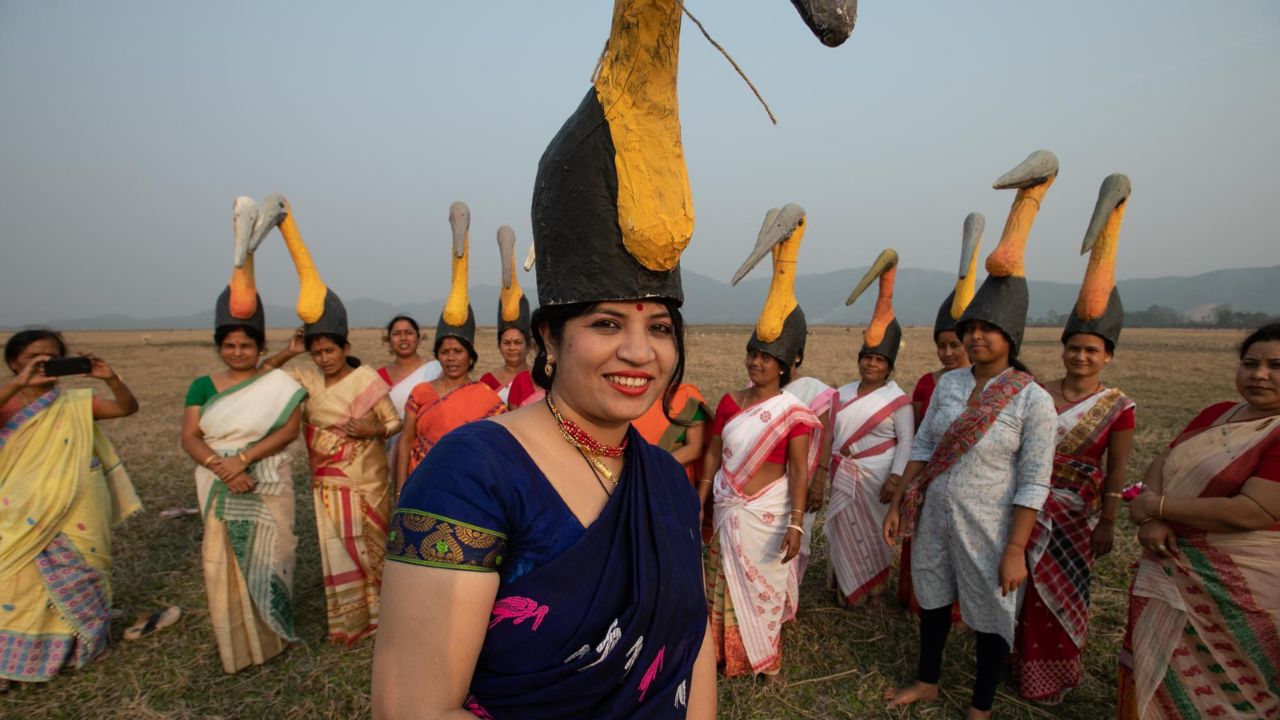Dr. Purnima Devi Barman, a wildlife biologist from Assam, India, is a global inspiration for her tireless work to save the endangered greater adjutant stork, locally known as Hargila (meaning “bone swallower” in Assamese). Through her innovative Hargila Army, an all-female conservation movement, she has transformed the bird’s image from a bad omen to a cultural icon while empowering thousands of women. Named one of TIME Magazine’s Women of the Year 2025 and honored with the UN’s Champions of the Earth 2022 and Whitley Gold Award 2024, Barman’s work is a shining example of blending conservation with community empowerment.
Early Life and Passion for Nature
Born in Assam’s Kamrup district, Purnima Devi Barman grew up near the Brahmaputra River. At age five, she was sent to live with her grandmother, a farmer, who introduced her to the birds of the nearby wetlands and paddy fields. This sparked her love for nature, especially the greater adjutant stork. She pursued a Master’s in Zoology at Gauhati University, specializing in Ecology and Wildlife Biology, and began her PhD in 2007, which she delayed until 2019 to focus on conservation work.
The Hargila Army: A Women-Led Revolution
In 2007, Barman witnessed villagers cutting down a tree with greater adjutant nests, killing several chicks. Realizing the stork was misunderstood as a bad omen due to its scavenging habits and appearance, she founded the Hargila Army, a group of over 20,000 women in Assam. This grassroots movement protects the stork and its wetland habitats while empowering women through sustainable livelihoods. The Hargila Army:
- Protects Nesting Sites: Encourages villagers to preserve trees used by storks, with no nesting trees cut down since 2010.
- Rescues Chicks: Uses nets to catch falling nestlings during monsoons, treating and releasing them with community help.
- Weaves Conservation into Culture: Women create and sell textiles with Hargila motifs, raising awareness and earning income.
- Plants Trees: Has planted 45,000 saplings near nesting sites and wetlands, with plans for 60,000 more.
Conservation Achievements
Barman’s efforts have turned the tide for the greater adjutant, the second-rarest stork species in the world. When she began, only 28 nests existed in Kamrup district; by 2019, this grew to 200 nests, creating the world’s largest breeding colony. The stork’s status improved from endangered to near threatened on the IUCN Red List, with Assam’s population rising to over 1,800. She also developed artificial nesting platforms, successfully hatching a chick in 2019.
Community and Cultural Impact
Barman integrated conservation into Assamese culture, changing perceptions of the Hargila:
- Cultural Events: Organizes baby showers (Panchamrit ceremonies) for expecting storks, mirroring traditions for pregnant women, and celebrates Greater Adjutant Day on February 2 annually.
- Education: Engages children through games, field trips to landfills, and scholarships for families with nesting trees.
- Local Traditions: Incorporates the stork into folk songs, dances, and festivals, making it a symbol of pride.
Conservation model in Cambodia
In a landmark initiative, Purnima Devi Barman extended her conservation model to Cambodia on July 28, 2025, leading a training program for 20 Cambodian women conservationists and park rangers at the Prek Toal Bird Sanctuary in the Tonle Sap Biosphere Reserve, a Ramsar site. Hosted by the Wildlife Conservation Society (WCS) Cambodia, the day-long session adapted the Hargila Army model to protect the endangered greater adjutant stork in Cambodia. Barman unveiled educational posters showcasing the stork’s behavioral ethogram, blending science with cultural traditions through activities like leadership exercises, a “textile hunt,” and a “web of life” game. A key outcome was the formation of the Sisters and Brothers of Storks, a global network to conserve storks worldwide, marking a milestone in South-South cooperation for biodiversity and women’s leadership.

Awards and Recognition
Barman’s work has earned her prestigious accolades:
- TIME Magazine’s Women of the Year 2025: The only Indian woman on the list for her conservation and empowerment efforts.
- UN’s Champions of the Earth 2022: Honored in the Entrepreneurial Vision category.
- Whitley Gold Award 2024 and Whitley Award 2017: Known as the “Green Oscars” for her conservation leadership.
- Nari Shakti Puraskar 2017: India’s highest civilian award for women, presented by President Ram Nath Kovind.
- Other Awards: Includes the UNDP India Biodiversity Award 2016, RBS Earth Hero Award 2016, and World Female Ranger Award.
Challenges and Future Goals
Barman faces challenges like habitat loss, human-wildlife conflict, and climate change, which affect stork breeding and wetlands. She plans to:
- Expand the Hargila Army to Bihar and Cambodia to protect all breeding grounds.
- Increase breeding pairs by 20% in Assam within two years.
- Educate 20,000 students and establish a global network with conservationists.
Importance
Purnima Devi Barman’s work goes beyond saving a species. By empowering women, restoring wetlands, and reducing pollution, she’s strengthening ecosystems and communities. Her model shows how conservation can drive social change, making her a global role model. As she said, “This is not just about saving a species. It’s about empowering communities, especially women, to become guardians of nature.”
Also See: KK Handique: The Visionary Scholar of Assam
Also See: Poems of Hiru Da: The Heart of Assamese Poetry
Also See: Pulin Das: The Pioneer of Assam Sports





